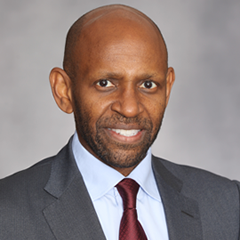Amidst the finger pointing, COVID 19 marches on – wreaking havoc in health systems and economies. The spat between the US and China is unfortunate. As the two largest economies, one way or the other, the COVID bill will arrive at their table. So, the sooner that cooperation and support for the heroes of this crisis, health workers, is enhanced, the better.
The three widely used COVID data points (infection, recovery and mortality), have different implications for lockdown periods and therefore the economic impact. A lot has been made about spatial interactions, so lockdowns and travel bans have been imposed. Social distancing and testing enhance prevention but restarting economies is dependent on overall health care capacity, as this determines recovery and mortality. Indeed, the length of time from infection to recovery or infection to mortality will determine the speed with which we can safely re-open our economies.
The data and casual observation indicate that infection rates are correlated with trade volumes and travel integration with western Europe and the United States. So far, in most regions, large economies and hubs have had the hardest knocks. It is interesting that countries in Central and South America (Bolivia, Guyana, Nicaragua, Paraguay, Uruguay, Suriname, Venezuela, all have infection rates which are similar to those in Africa and lower than some of their larger globally integrated neighbours, Argentina, Brazil, Chile and Peru.
There is also a pattern of pairing – non-European countries with strong cultural links to specific countries in Western Europe have been affected, for example, France and Algeria, Spain and Morocco, the UK and South Africa. In this regard, the numbers for Nigeria appear too low, particularly given its’ low per capita testing rate. Thankfully, as with parts of Africa, war zones such as Afghanistan, Iraq, Libya, Syria and Yemen have low rates. They are disintermediated from global travel flows and therefore have been spared the additional burden of COVID.
Germany has a larger population and higher total number of infections than the UK. However as at 24th April, Germany has a 60 per cent recovery rate (92300 from a total of 154, 050). In comparison, in the UK, the infection level is now over 140,000 and perhaps because the recovery rate has been low, it has not been widely publicised. We know that on 16th April, the UK death toll at NHS hospitals was 13,700 and that by 24thApril it had climbed to 20,000. More people have died in the UK over the last week than have died in Germany (5,630) over the entire period of the disease. The UK government is rapidly ramping up capacity. Nonetheless the grim trend in the UK suggests that unfortunately the mortality rate could surpass that of Spain and Italy and France where mortality rates are over 9%.
With mortality rates of less than 3%, Germany and Austria are anomalies in Western Europe. Why are their recovery rates so high? Or put another way, why have the recovery rates in other countries been so low? Clearly, it is obvious that infection is correlated with mortality. However, the evidence from Germany and Austria is that recovery is even more correlated with health care capacity and the social contract. This also shows in data from Australia and New Zealand.

One possible explanation is that, over the last two decades, the world has become a more unequal place. This is best explained by the data from the United States. Put politely we know that GDP per capita is a statistical wig. Per capita GDP in the US is 30 per cent higher than in Germany or Austria. The US has the highest death toll, now sadly over 50,000 deaths. This has been particularly high in the black and Hispanic communities. The mortality rates in the US show that large numbers of Americans are poor and badly catered for. The recovery rate relative to the mortality rate is not a statistical aberration. In the US, it is an indicator of inequality. The primarily market-based US health care system has delivered the outcome which it was designed for. Seen in that light, there has been no market failure. Just social failure. There appears to have been significant underinvestment, structural bias and inequity in health care systems of some advanced countries. These systems have been put to test by COVID and have been found to be socially fragile and unprepared. This is possibly why mortality rates have been so high and are likely to remain so until appropriate capacity is put in place.
That is the key message for Africa: Economic recovery is dependent on total health capacity. For example, Germany and Austria are preparing to restart their economies. Their hospitals apparently now have spare capacity. Africa has been given the opportunity to witness the large-scale effects of the disease. We should use it. We are not prepared. At the start of the COVID crisis, Italy had 80 ventilators per 1 million people. Its’ recovery and mortality statistics show how inadequate that level of capacity has proven to be. In Kenya, the number is 5 ventilators per 1 million and in Nigeria it is 0.8 ventilators per 1 million. Which means that Nigeria has approximately 160 ventilators for a population of 200 million people.
So, to start with, we need to get our own house in order. It is only after we have done some of our homework, that Africa can meaningfully approach the international community for the kind of support that we think we need. But even then, it is unlikely that the donors are in the mood to listen right now. Over the last few weeks, northern European countries indicated unwillingness to provide financial support to southern Europe. A deal has been reached only because Germany agreed to underwrite the process. Against this global tightness in finances, the African Union has appointed a panel of experts to put forward Africa’s economic case. But to who? IMF forecasts indicate that GDP in the advanced economies will decline by 6.1 per cent in 2020. And although there will be a recovery of 4.5 percent in 2021, this will be off a low base. In real terms, this implies no economic growth for the next few years. In such a scenario, most donors are likely to listen politely, but are unlikely to be forthcoming with much support. The donors are going through their own crises.
This is going to be a tough time. The IMF also forecasts that in 2020, the GDP of sub-Sahara Africa economies will decline by 1.6 in 2020 and recover by 4.1 per cent in 2021. GDP in Nigeria and South Africa will decline by 3.4% and 5.8% and in 2021, will recover by 2.4% and 4% respectively. Some models are being developed to assess the impact on the economy based on different COVID scenarios. A key insight of the modelling is that we cannot out last COVID. We are going to have to manage it and learn how to live with it. While we need to open-up our economies – our strategy cannot be based on prevention alone. We need to build capacity, such that, if prevention is not wholly successful, the recovery rate will be high. Our economic recovery is dependent on this.
Our interventions need to be immediate and strategic. To do this we need data and information. There needs to be large and immediate development of a pan-African health capacity database. Leading health sector NGOs such as Amref Health Africa, in collaboration with international partners such as the Global Fund, and the DFIs could play a critical role in this. We need detailed information on the number of hospitals in Africa that have effective hospital beds and intensive care units. In what part of the country are they located? How much does it cost to access them? Lets’ carefully audit our health care facilities, assess what is lacking and purposefully find a way to fill these gaps. This effort will require coordination led by presidents and implemented by ministries of finance and health. My guess is that financial audits of health budgets and expenditure over the last decade will explain the reasons for some of the capacity shortages. At the strategic level we need to increase the budget allocation for health – which has been underfunded, particularly given the high population growth rate. Clamping down on corruption and wastage in the public sector will enhance capacity to increase funding of the health sector.
Provision of appropriately measured and strategically targeted stimulus to the private sector should be a central part of our economic recovery plan. In return, we need to ensure that the private sector plays its own part by meeting agreed fiscal and tax contributions on time and in line with the spirit of the times. This requires innovation, carefully designed policy and commitment to targets. Given the limitations in finances that most African countries face, we ought to focus on immediate capacity in the health sector – such as providing support to companies and businesses which produce face masks, sanitizing liquids, testing kits ventilators and more advanced health care and hospital products. Thereafter, we need to rollout this support to other sectors. So as to help reduce aggregate corporate and household debt obligations, monetary policy needs to be more proactive and accommodative than it has been so far.
Finally, we need to solve the present problem, but also start thinking of the next one. The invention of a palliative may be possible this year – but a vaccine of some sort is most likely a year to 18 months away. In the meantime, Africa needs to urgently build up its health capacity. Our sustainable economic recovery is dependent on this. A truly Global Health Crisis Fund will be required to effectively meet the challenges of new waves of COVID and other health threats. The fund will also support Africa’s capacity to respond. We need to work on this now. This requires global cooperation. The world has changed forever.

The author is the chair of the International Board of AMREF Health Africa. He writes in his personal capacity.
